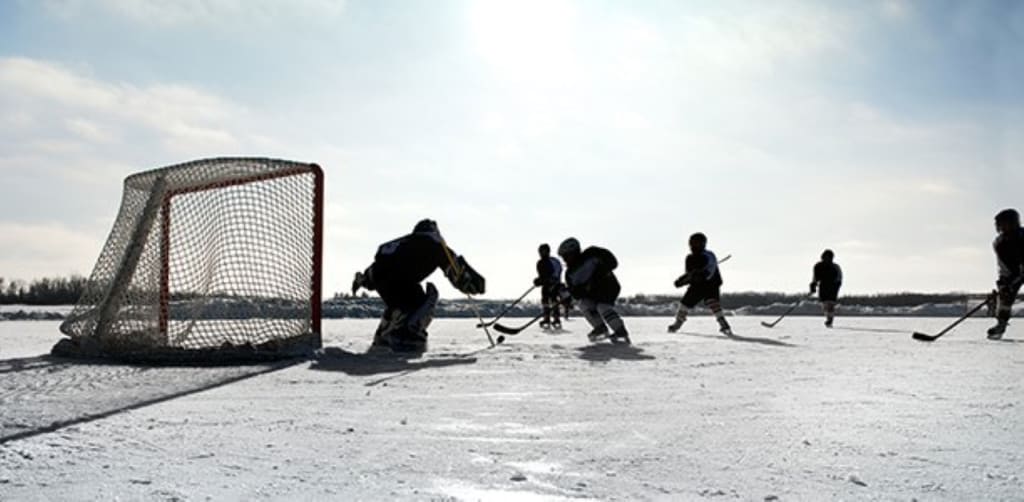The Deferment
Dodging “Draft Dodging”

Growing up, our family dentist loved his props. He had serious dental models appropriate for most patients from my conventional Upstate village. He had “fun” cartoonish ones for the kids. Then, he had a reserved cache of items shown only to the unconventional. No family was less conventional than mine. The term I heard, most often, was quirky. I suppose from the outside looking in, we fit no mental model to which the neighborhood conservatives could relate. Dad drove British sports cars and Mom never set a table without silver and candlesticks, candles alight through the window of our miniscule dining room. Despite our “airs”, we were living in a cinder block rental abutting the highway. We were tolerated by our neighbors although never socially accepted. This did not seem to bother my parents who had plenty of friends elsewhere.
My Mom was sitting close by as I squirmed in the dentist chair. The dentist emptied an envelope with huge teeth. “From a retired Budweiser Clydesdale”, he noted. He then pulled out a shrunken voodoo head. We learn he had picked it up during Mardi Gras. “This is your son, Mrs. Mason. How many of these teeth do you suppose we can fit into this jaw?” He proceeded to open and shut the shriveled, hinged mouth for effect. “Seriously, in your son’s case, maybe, with proper orthodontics, he can accommodate 22. We need to pull six adult teeth and another four ‘baby’ teeth, which will likely never leave the nest without extraction. Holding up an x-ray, “Considering the root length, they seem convinced they are adult teeth. Reiterating, after extraction, with three or four years of serious work by an orthodontist, we will make order out of this chaos. By then, we will be ready to cut out his wisdom teeth.” None of this sounded either fun or painless. I was right, it wasn’t.
February, three years later, the medieval, metal contraption of band and wire (this was pre-Invisalign) was removed, and my teeth liberated. I was standing in the mudroom, goalie stick, gloves, skates in tow. My Dad asks, “Where do you think you are going?” I responded in that tone and verbless sentence manner that irritates every parent everywhere, “Pick-up game, golf course.” My father, more eloquent, “I have not finished paying for those teeth. Do you think playing hockey is a good idea?” My father was the master of the question, posed with only one possible answer. “What if I wear my catcher’s mask?” From the kitchen, I could hear my Mom, “Stan, he is only young once. Let him play with his friends. They are not very good, how much harm can they do? Unlikely, the puck will ever get off the ice.” While truthful, Mom’s words stung a bit. But, she knew her hockey. It is relevant that I grew up in a Can-Am home. My mother was a Canuck. My father was not. This hockey tiff my Dad and I were playing out was an isolated event. We never battled over pick-up basketball games played in spring and summer, or pick-up tackle football games played sans equipment in fall. For our only organized play, Little League, I was a mediocre catcher, thus the catcher’s mask. I spent my entire youth putting my face in front of one danger or another. But hockey was that day’s sticking point. There is nothing more sacred to Canadians than hockey, or less interesting to Dad. Was it the too many trips across the border to Hamilton and Toronto to visit Mom’s family? Or the confiscation of his beer at the Canadian Grand Prix, by the OPP? In our house the provincial police came to be known as the Canadian Gestapo. Except for Mom and Molson’s, Dad seemed tired of all things Canadian. As was most often the case, Mom prevailed on my playing hockey (poorly it would seem). In retrospect, I am sure she was glad to have me out of the house.
My parents did not have arguments, at least not in front of us kids. These Can-Am skirmishes were as often playful as serious. Dad, an excellent chef, would poke fun at his mother-in-law’s awful British cooking, “Boiled meat is best left back in Scotland with the sheep and rain.” My Mom was kinder. She did have a rapier wit, though. He felt it best not to thrust or parry directly with her.
I threw my goose down parka over my sweatshirt and headed over to the local golf club. Golf was very popular in my village, which given the long winters and generally inclement weather blowing off the lake, is surprising. The water hazards were custom made ponds for playing hockey. We would shovel off whatever snow had accumulated since the last skirmish. We would then take broom to the surface in a futile attempt to simulate an NHL rink. The words, “the ice is smooth as glass” were never uttered by my pals. Intermittent sunshine and persistent northwest winds conspired to construct a surface more akin to broken glass. It would crunch and crackle under the weight of our bodies on blade. It slowed down the game and provoked peculiar behavior from the puck, which would take on a life of its own. It never stayed a straight path from stick to net. One of the joys of pick-up games, is the complete freedom, no interference from adults. Regardless of sport, not a single foul or penalty had ever been called. If someone got a little too physical, it was worked out, usually peacefully. I learned later in graduate school that this is all explained by multi-transactional game theory. The other benefit of no adult supervision is that there is no timekeeper. Somehow, we reached consensus that enough time had passed or as often, dusk would decide. During breaks, we would amble over for a water bottle or can of soda. Occasionally, an injury provided a rest for everyone. If the hurt could be shaken off, play resumed when the competitor was ready. If not, he might start walking home, which was a clear indication to get back on the ice, the court, or the field. This day, the injury was mine. At an intermission, I started to skate from the net for a swig of whatever. I was in so much pain that I had to be helped to the side of the pond. I could not, did not, “shake it off”. My back would not straighten. I was doing my best imitation of what I imagined would be my 90-year-old self. My buddies loaded me into a car and drove me home. They slowly walked me to the front door. There I was handed off to Dad. I was his last child. He had seen it all and was usually apathetic about this cut or that bruise. He scrutinized my mouth and was satisfied that his investment was intact. In those days, right after my braces came off, I occasionally saw a far-off look in his eyes. Gazing at my new perfect smile, he appeared to be imagining a Jaguar convertible that could have been. As I fought back the tears from the excruciating pain, it occurred to my parents something more was afoot. Mom drew a hot bath. Dad lifted me into the tub. Slowly my back unseized.
My parents were socialists and worse, pacifists. I have struggled most of my life to make sense of why the latter is a bad thing. Nevertheless, for some reason my parents’ consistent anti-war, anti-military stance riled people up. It made them bellicose, which proved my physics lessons about every action and its mandatory reaction. I do remember repeating something Dad said. I was at the home of a girl, our first date. I do not recall the run-up, but her father, who served in WW II (like the fathers of all the girls dated; my Dad, too) said, “My country right or wrong.” To which I replied, “Well, given that choice, I pick ‘right’.” There was no second date. It was the height of the Vietnam war and to say the country was divided defines understatement. My parents were loudly vocal and active in their support for withdrawal. On the other hand, their whispers were reserved for family matters. It is an aspect of muffled conversation that the only words overheard are the peculiar ones. The ones I could make out were Canadian place names. There were some familiar ones that would not rise to the level of curiosity, Toronto, Hamilton, St. Catharine's. Then there were the unexpected, Winnipeg, the home of my godparents; Ottawa; and even far-away Vancouver, where my rich uncle, rarely seen, lived. Where I grew up, Can-Am families were common. Some of them had been torn apart by the Vietnam War. One Canadian mom had shuffled her son off to Nova Scotia, destination unknown. Her husband did not speak to her for years. Some of this “draft dodging” arose from conviction that the war was wrong, but most was the selfishness of a mother or a father, or both who did not want to lose a son. He was often their only son, like me. They did not understand the purpose. It was not clear-cut like WW II. Almost everyone agreed with that.
I remember the doctor’s name because it was corn with a “K”. Dr. Korn was a brilliant orthopedist. His bedside manner was something less stellar. He examined my lower back before taking x-rays. He turns to my parents, strangers to him, and sneered, “You trying to get your son out of the draft?” He must have been taken aback by the stunned look on each of our faces. To know my parents is to appreciate how incredibly rude his query. They never manipulated, unambiguous in all things. As for me, the truth of the pain was all the truth I needed. My Mom collected herself, “Sir, my son will never fight in Vietnam or anywhere else. We are not here for your assistance with that. Now, please, do your job.” The rest of the visit was very quiet. I was handed off to a technician. Thirty minutes later, Dr. Korn was sheepishly explaining the details of degenerative disks and spinal cords. He hypothesized it might be congenital. He offered options ranging from ‘do nothing’ to disk fusion. His only directives were no intercollegiate athletics and no downhill skiing. I was reminded of the old saw. “I went to the doctor, and he said I could never play violin again. That was okay. I couldn’t play before our appointment.” There was a reason I spent my youth playing pick-up. I was not/am not a very good athlete. Despite living with long winters, I did not have the money, most of which had gone into my teeth, to participate in the rich kid’s sport of downhill. For dramatic effect and to underscore the gravity, Dr. Korn added, “Possibly, a lifetime of paralysis, if you risk further injury”.
My parents’ clandestine conversations continued, but they had moved on from Canadian place names. Now their attention had turned to something about colleges and weddings. Occasionally, I would hear my older sister’s name. Much to my parent’s chagrin, my sister dropped out of college in June. On July 4th, she started her life of wedded bliss.
Two more years passed. My medical deferment came through. Turns out it didn’t matter. By then, the draft was on the lottery system. My birthday was safely in the 200’s somewhere. Like a bad credit report, my degenerative disk diagnosis would define minor details my entire life. From time to time, I have wondered what it would have been like if I had been banished to Canada. At the time, it seemed an adventure, but the truth of it might have been a bit of “man without a country”. All best left to the imagination.






Comments
There are no comments for this story
Be the first to respond and start the conversation.